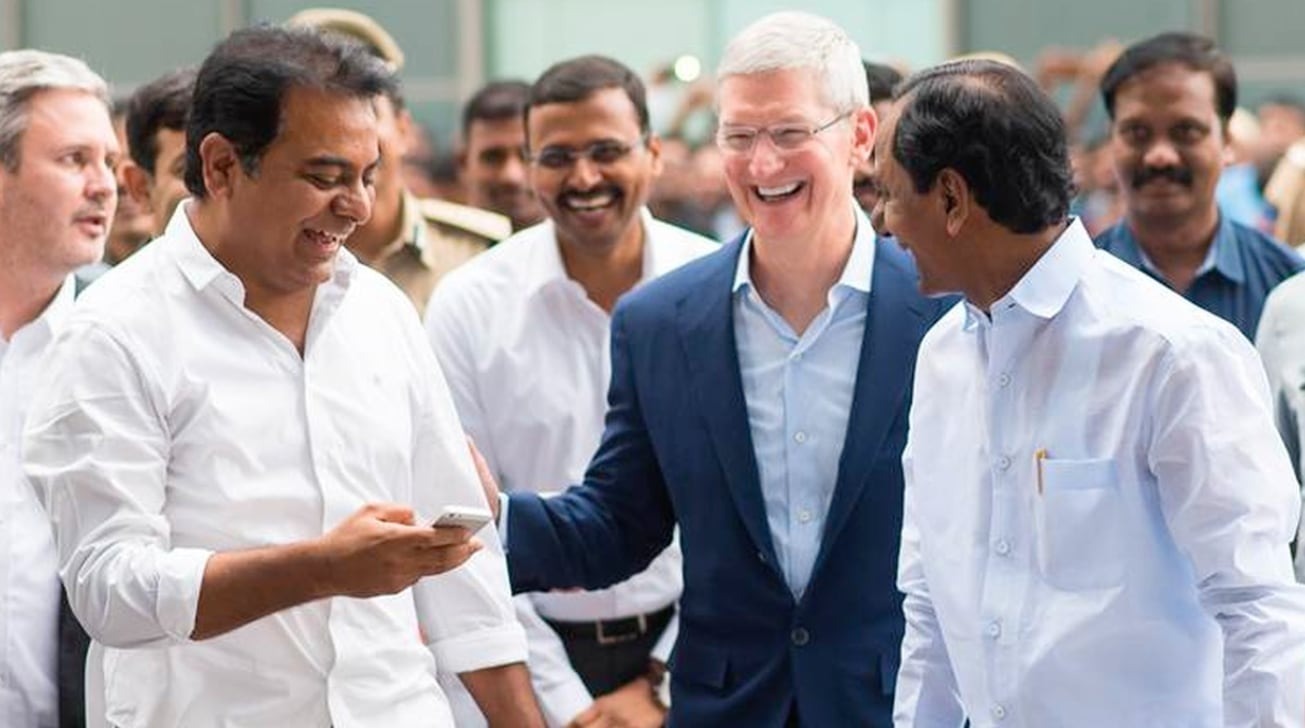Apple is contemplating a major shift of its manufacturing capacity to India, with a move of almost a fifth of its production capacity away from China possible, if the report is accurate.
The Apple supply chain largely consists of Asia-centric component production and assembly, with the vast majority taking place in or near to China. Over the years, there have been suggestions that Apple is keen to diversify its supply chain to other countries, but a Monday report suggests India may be the biggest potential venue for such a migration.
Senior executives at the iPhone maker have apparently been speaking with high-level government officials in India over the last few months, reports the Economic Times. The talks centered around Apple potentially scaling up its local manufacturing efforts in the country, with a possible goal of shifting roughly a fifth of its existing China manufacturing to India.
Officials speaking to the report propose this could equate to $40 billion in local manufacturing revenues over the next five years, and could make Apple India's largest exporter.
"We expect Apple to produce up to $40 billion worth of smartphones, mostly for exports through its contract manufacturers Wistron and Foxconn," an official claimed, "availing the benefits under the production-linked incentive (PLI) scheme." The PLI scheme aims to provide incentives to companies to encourage manufacturing in the region.
Another official claimed India "isn't a big market for Apple as the company sells only a fraction of its total output in India," and that Apple is actually looking at the country "as a base to manufacture and export, essentially diversifying its production out of China."
Apple already performs some manufacturing of iPhones in the country, though it is currently not enough to cover demand. It is claimed Apple sells iPhones worth around $1.5 billion per year in India, with a market share of between 2 and 3%, while the value of locally-produced iPhones is less than $0.5 billion.
To achieve what is proposed in the report, Apple would need to make considerable investments in its India-based production, including expanding its local supply chains. To gain the benefits of the government's PLI scheme, Apple would also need to produce at least $10 billion worth of iPhones in a phased manner between 2020 and 2025, meeting annual targets along the way.
On reaching the goal, the actual incentive will be between 4% and 6% of incremental sales over a base year of goods manufactured in the country.
 Malcolm Owen
Malcolm Owen




-xl-m.jpg)


-m.jpg)







 William Gallagher
William Gallagher
 Mike Wuerthele
Mike Wuerthele


 Thomas Sibilly
Thomas Sibilly
 Wesley Hilliard
Wesley Hilliard
 Marko Zivkovic
Marko Zivkovic







3 Comments
Excellent. India has it's own problems but at least it's a democracy that generally over time moves in the right direction, momentary setbacks are just that. Far rather them than totalitarian China.
It's a shame that that relationship was soured early on, seemed like an easy alliance, but you can thank Nixon and Kissinger for sending them into Soviet hands for a few decades there, tl;dr when Pakistan was committing a genocide in then-East Pakistan (now Bangladesh), India stepped in to try to help, and got threatened for it by the US of all things, because Nixon was so paranoid about that region going communist that apparently it was better to side with the genocide. The Soviets warded off the US ships, setting the stage for the relationships for the next few decades.
https://warisboring.com/in-1971-the-u-s-navy-almost-fought-the-soviets-over-bangladesh/
Handled a better way, India would have been a much better ally than Pakistan, and a much better counterweight to China. At least that's being fixed now it seems, if late.
This seems consistent with Apple wanting to sell more product in India which does have some local content laws. Diversifying Global Supply Chains and Manufacturing has got to make business sense. Remember, corporations operate in the interests of their shareholders and customers. Whoever said India is a '3rd world country' obviously is laking a complete picture. While it's not the US, or Western Europe, it certainly is developing a modern economy. It's also the world's largest Democracy...
Re-read the commenting guidelines, and try again.